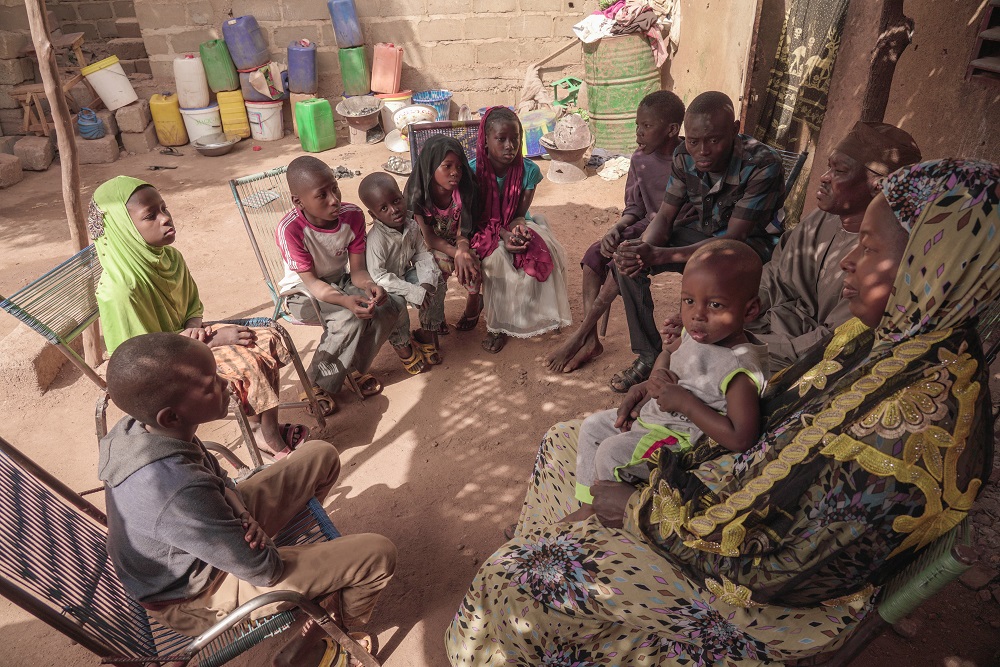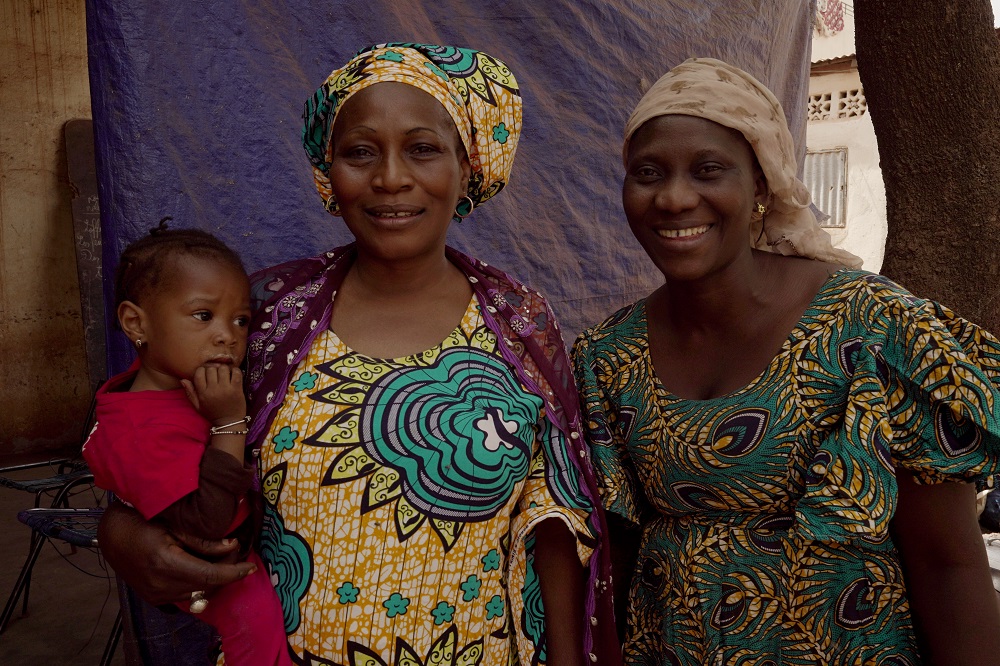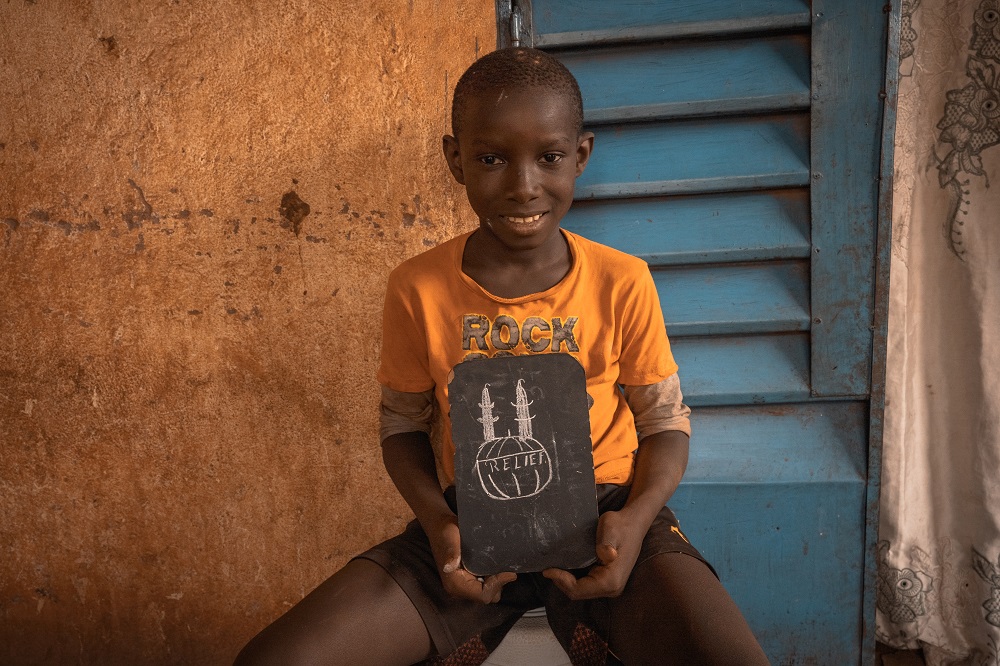Bintou was still a child when her daughter was born. More than 30 years later, she persuades others to reject early forced marriage and female genital mutilation/cutting (FGM/C).
A widow, Bintou was struggling to provide for her seven children. Then Islamic Relief began giving her a regular stipend to help her meet the family’s basic needs and send her children to school.
Our orphan sponsorship scheme also introduced Bintou to our Channels of Hope project, which is supporting communities to tackle gender-based violence and improve child protection. She began attending monthly meetings in which local religious leaders preached against such traditional cultural practices.
Leveraging the power of faith to push for positive change
“We learned about early child marriage and FGM/C. We became the new ears listening to these words, which we used to hear from afar but didn’t believe,” says the 46-year old, who lives in the capital city of Mali, where such practices are commonplace.
More than one in two girls in the west African country are married before their 18th birthday, and according to the UN 91% of women and girls undergo FGM/C. Islamic Relief’s faith-based approach trains faith leaders to show their communities that such practices are against the principles of Islam.

“From the time I attended this training, it greatly changed the way I work,” says imam Mahamadou, who now delivers weekly sermons tackling gender-based violence and child protection issues.
“Even if you don’t know the meaning of a song, if you listen to it again and again and again you will sing along with the singer. So preaching again and again can bring about change. Islamic Relief’s work is like a diamond, it is invaluable.”

Faith-literate training challenges traditional practices
Coulibaly, an imam living in Komittan village, also took part in a Channels of Hope project delivered by Islamic Relief in cooperation with World Vision with support by the Deutsche Gesellschaft für Internationale Zusammenarbeit (GIZ) GmbH funded by the Federal Ministry for Economic Cooperation and Development (BMZ).
“In Komittan [village] violations of human rights, girls’ and child rights are daily practices,” he says. “Most of us are perpetrating this because of ignorance. We all follow what our tradition and culture dictate without seeking the reasons… although we know the consequences.”
Like Mahamadou, he received faith-literate training, which he says changed the way he saw such practices forever.
“As a faith leader I have been perpetrating these harmful practices thinking that I was doing right, based on religion. The training session made me aware that the practices of FGM/C [and other forms of] violence against women had nothing to do with religion. Islam strictly forbids [inflicting] violence and torture on any human being or creature.”
The 45-year old father is now determined to make a difference.
“I have now realised that I was a big sinner… I have harmed many girls and women in our community through obliging them to undergo FGM/C. I greatly regret what I have been doing. I changed my mind and would also urge other faith leaders to change theirs. I will no longer send any of my daughters to undergo this practice and I will preach publicly against it.”

Empowering communities to change hearts and minds
Bintou says that she too changed her mind, after hearing imams like Mahamadou and Coulibaly speaking out in project meetings.
“The meetings gave me confidence; my mind adopted those views. I gained a lot of knowledge. All those who attended the meetings had a much deeper understanding.
“Our children no longer undergo FGM/C, we stopped that. None of my granddaughters underwent FGM/C and none of them will, God willing. In my house there are seven girls who are not yet ready for marriage. They need to learn more about life, grow up and attain maturity before they get married.
“People may try to oppose me but I believe they will understand later on. I said that to many people and they later understood I was right,” she adds, describing the experience of turning down marriage requests for her daughters.

The grandmother was determined to share what she had learned with others, so she joined an Islamic Relief community action team.
“We pray Allah makes people understand and resolve to stop. I would go about telling the people I know. After the meetings I would gather many women and we would meet every Wednesday at my house. It was fairly easy to spread the message.”
As well as religious leaders and local women like Bintou, the project trained schoolteachers, youth workers and children – empowering them all to push for positive change in their communities.
Incidents of FGM/C in Bintou’s neighbourhood dropped from 100 per cent to five per cent after the project, which also covered villages in rural Ouélessebougou. As well as persuading seven FGM/C practitioners to give up the practice, it increased school attendance – particularly among girls – and reduced rates of violence against women and early and forced marriage.
Support our life-changing work in Mali and around the world: donate now.










